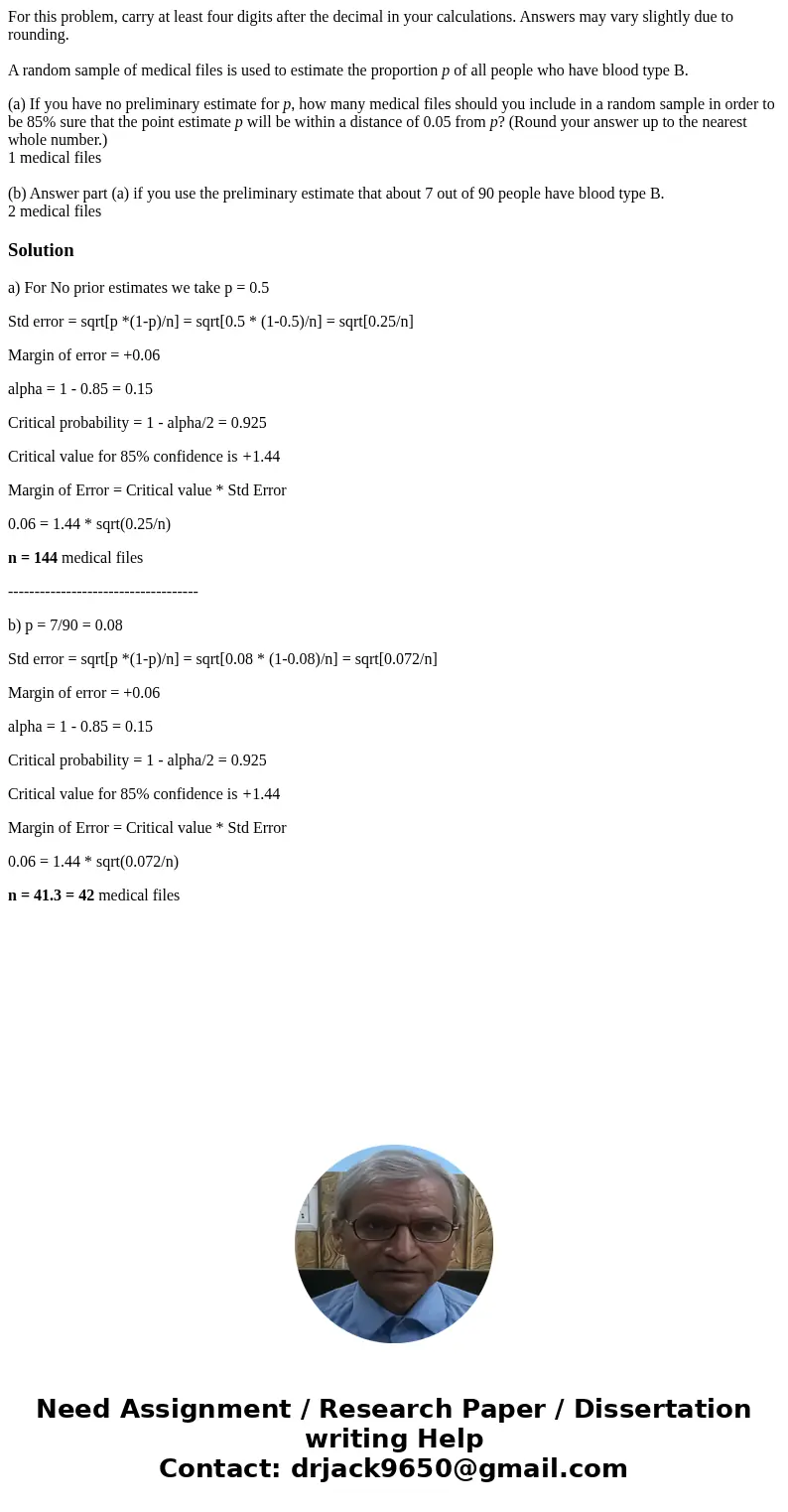For this problem carry at least four digits after the decima
For this problem, carry at least four digits after the decimal in your calculations. Answers may vary slightly due to rounding.
A random sample of medical files is used to estimate the proportion p of all people who have blood type B.
(a) If you have no preliminary estimate for p, how many medical files should you include in a random sample in order to be 85% sure that the point estimate p will be within a distance of 0.05 from p? (Round your answer up to the nearest whole number.)
1 medical files
(b) Answer part (a) if you use the preliminary estimate that about 7 out of 90 people have blood type B.
2 medical files
Solution
a) For No prior estimates we take p = 0.5
Std error = sqrt[p *(1-p)/n] = sqrt[0.5 * (1-0.5)/n] = sqrt[0.25/n]
Margin of error = +0.06
alpha = 1 - 0.85 = 0.15
Critical probability = 1 - alpha/2 = 0.925
Critical value for 85% confidence is +1.44
Margin of Error = Critical value * Std Error
0.06 = 1.44 * sqrt(0.25/n)
n = 144 medical files
------------------------------------
b) p = 7/90 = 0.08
Std error = sqrt[p *(1-p)/n] = sqrt[0.08 * (1-0.08)/n] = sqrt[0.072/n]
Margin of error = +0.06
alpha = 1 - 0.85 = 0.15
Critical probability = 1 - alpha/2 = 0.925
Critical value for 85% confidence is +1.44
Margin of Error = Critical value * Std Error
0.06 = 1.44 * sqrt(0.072/n)
n = 41.3 = 42 medical files

 Homework Sourse
Homework Sourse